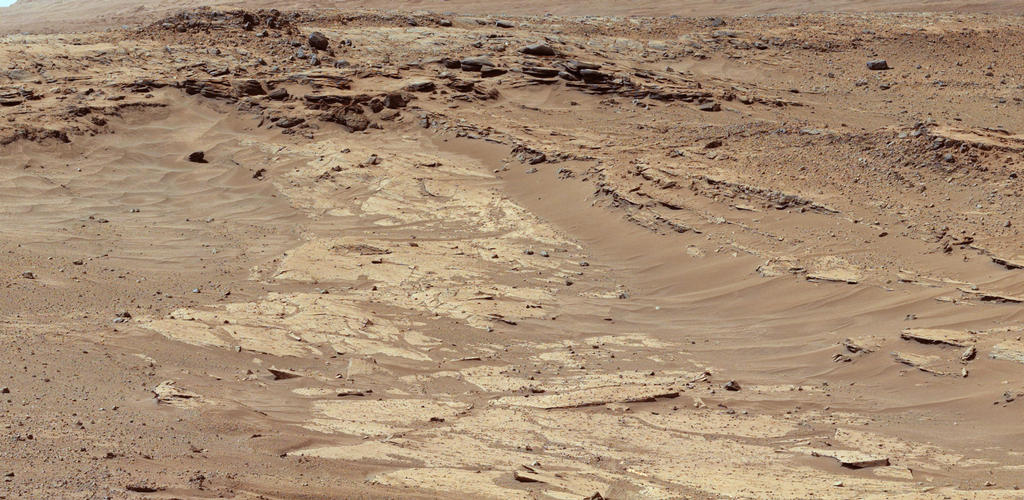Variations in the stuff that cements grains together in sandstone have shaped the landscape surrounding NASA’s Curiosity Mars rover and could be a study topic at the mission’s next science waypoint.
On a journey with many months yet to go toward prime destinations on the lower slope of Mount Sharp, Curiosity is approaching a site called “the Kimberley.” Scientists on the team picked this location last year as a likely place to pause for investigation. Its informal name comes from a northwestern Australia region known as the Kimberley. The Martian site’s geological appeal, based on images taken from orbit, is that four types of terrain with different rock textures intersect there.
“The orbital images didn’t tell us what those rocks are, but now that Curiosity is getting closer, we’re seeing a preview,” said Curiosity Deputy Project Scientist Ashwin Vasavada of NASA’s Jet Propulsion Laboratory, Pasadena, Calif. “The contrasting textures and durabilities of sandstones in this area are fascinating. While superficially similar, the rocks likely formed and evolved quite differently from each other.”
The rocks that the Curiosity mission has studied most intensively so far are finer-grain mudstone, rather than sandstone. The rover found evidence for an ancient lakebed environment favorable for microbial life when it analyzed sample powder drilled from mudstone last year in an area called “Yellowknife Bay.”
The rover team is eager to inspect sandstone at the planned waypoint, now just 282 feet (86 meters) south of the rover. The pause for investigations at this site might include time for collecting rock-sample material with the rover’s drill, for delivery to the laboratory instruments inside the vehicle.
Material filling the space between grains of sand in sandstone is called cement, whatever its composition. Characteristics of the cement can vary greatly, depending on the environmental history that affected the rock. Sandstones with some clay-mineral cements are quite soft. Tap them with a hammer and they crumble. Sandstones with quartz cement can be very hard. Hit them with a hammer and they ring.
